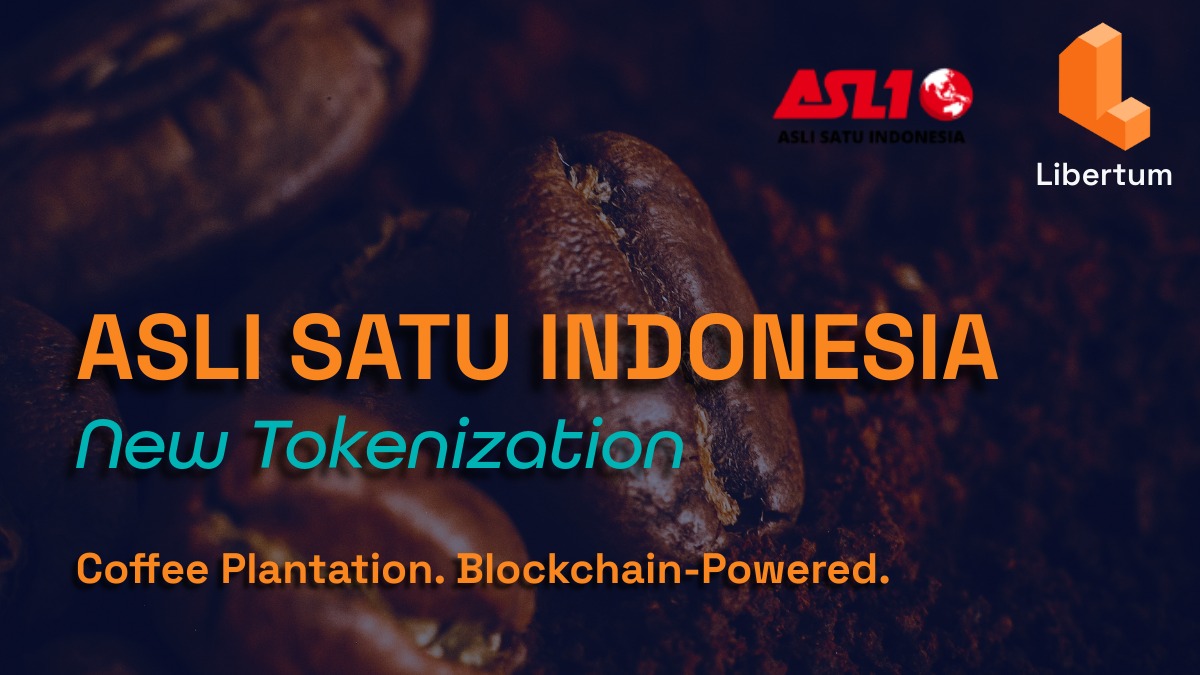The aroma of change is in the air.
In a landmark move blending tradition with cutting-edge blockchain innovation, Libertum is proud to announce a strategic partnership with Asli Satu Indonesia—a leader in sustainable coffee plantation infrastructure with an annual turnover exceeding $100M USD. Together, we are set to tokenize $150M USD worth of coffee plantation infrastructure, unlocking unprecedented investment opportunities in one of the world’s most beloved commodities.
About Asli Satu Indonesia
Asli Satu Indonesia is a cornerstone of Indonesia’s agricultural economy. Built on decades of expertise, the company has created a fully integrated coffee production ecosystem—covering cultivation, processing, distribution, and export to global markets.
Operating with a focus on sustainability and traceability, Asli has become synonymous with quality and ethical sourcing. Its coffee products are in high demand, both locally and internationally, solidifying its position as one of the country’s most influential agri-businesses.
The Partnership: Coffee Meets Blockchain
Under this partnership:
- $150M USD worth of coffee plantation infrastructure will be tokenized using Libertum’s full-stack tokenization engine.
- All operational, production, and supply chain data will be recorded on-chain, enabling real-time auditability and unmatched transparency.
- Tokenized assets will be offered via Libertum’s regulated marketplace, attracting global investors seeking exposure to high-value agricultural assets.
- Asli will receive a white-labeled shopfront powered by Libertum, giving them the tools to manage, market, and sell their tokenized assets seamlessly.
Why Tokenize Coffee Infrastructure?
The coffee industry is valued at over $495B globally, yet access to investment opportunities in this sector has been traditionally restricted to large corporations and institutional players. Tokenization changes that.
Through Libertum’s infrastructure:
- Fractional Ownership – Investors can own a share in coffee infrastructure without massive capital requirements.
- Liquidity – Tokenized assets can be traded, bonded, and staked, unlocking liquidity for previously illiquid assets.
- Global Access – Investors worldwide can participate in Indonesia’s thriving coffee industry without geographic barriers.
How It Works: From Farm to Blockchain
- Asset Assessment – Libertum and Asli identify and value the coffee plantation infrastructure to be tokenized.
- Regulatory Compliance – Using Libertum’s DASP license and issuer license, assets are registered as security offerings where required.
- Tokenization – Assets are digitized using ERC3643-compliant security tokens and listed on Libertum’s marketplace.
- Investor Access – Retail, accredited, and institutional investors can purchase tokens, earning potential yields and capital appreciation.
- On-Chain Transparency – Every step of production and revenue generation is auditable in real-time through blockchain technology.
Strategic Impact
This partnership is not just about raising capital—it’s about transforming agriculture through technology.
For Asli:
- New capital sources for expansion and infrastructure improvements.
- Enhanced trust with global buyers through verified, on-chain operational data.
For Libertum:
- Entry into the $495B coffee industry with a reputable partner.
- Demonstrating the power of tokenization in agriculture, paving the way for similar projects in commodities like cocoa, palm oil, and tea.
The Future: Coffee as a Digital Asset
This collaboration signals a broader trend—where real-world assets (RWAs) like agricultural infrastructure are becoming digitally investable, tradable, and transparent.
From the coffee fields of Indonesia to wallets worldwide—this is the future of agriculture, and it’s brewing now.
Learn more:
aslipangan.com
Powered by Libertum
#Libertum #AsliSatuIndonesia #Blockchain #Tokenization #RWA #CoffeeIndustry #Agritech #Sustainability #Web3
